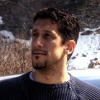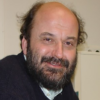Speakers
Luis P. Prieto
Universidad de Valladolid, SpainMaria Jesús Rodriguez-Triana
Tallinn University, EstoniaYannis Dimitriadis
University of Valladolid, SpainPaula Odriozola-Gonzalez
Universidad de Valladolid, SpainTobias Ley
Danube University Krems, Austria and Tallinn University, EstoniaMikhail Fominykh
Norwegian University of Science and Technology, NorwayStart
29/05/2020 - 14:00
End
29/05/2020 - 17:30
Soft-Skills Workshop
Across the world, close to half of the students enrolled in a doctoral program will drop out or never finish their dissertation. A similar proportion of them will experience severe symptoms of stress, anxiety or depression (a larger proportion than in the general population).
Although many external and personal reasons may influence such decisions and events, recent research has found that feeling like you are making progress is a common marker of persistence in the PhD. Indeed, having a sense of everyday progress is known to be crucial for engagement and employee satisfaction in many other knowledge professions as well.
This participatory workshop aims at making TEL doctoral students aware of some of the latest research on developing a sense of progress at work, in doctoral studies and elsewhere. To tackle this issue (which lies at the cross-roads between productivity and mental health issues), we propose a “flipped workshop” format. Several online activities are proposed to the participants before the workshop at the JTELSS, to lay certain basic concepts and gather participants’ input regarding their concrete understanding and problems related to progress, productivity and well-being. The two face-to-face sessions will be dedicated to individual and group-work activities to further develop, personalize and exchange solutions, practices and patterns – proposed by the facilitators from existing research and experience, or brought by participants themselves.
After the workshop, participants may voluntarily use the examples and data gathered during the workshop itself, to “dive deeper” into particular TEL concepts such as learning analytics, qualitative data analysis, epistemic network analysis, or socio-emotional learning.






